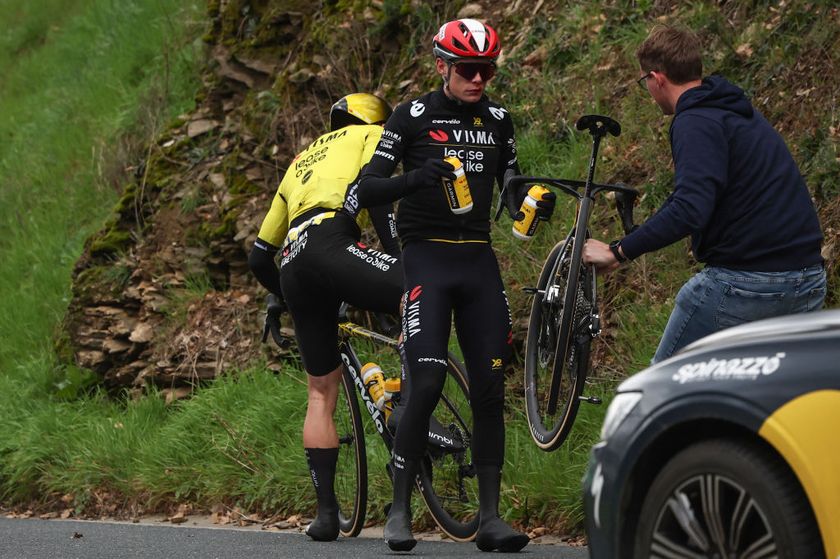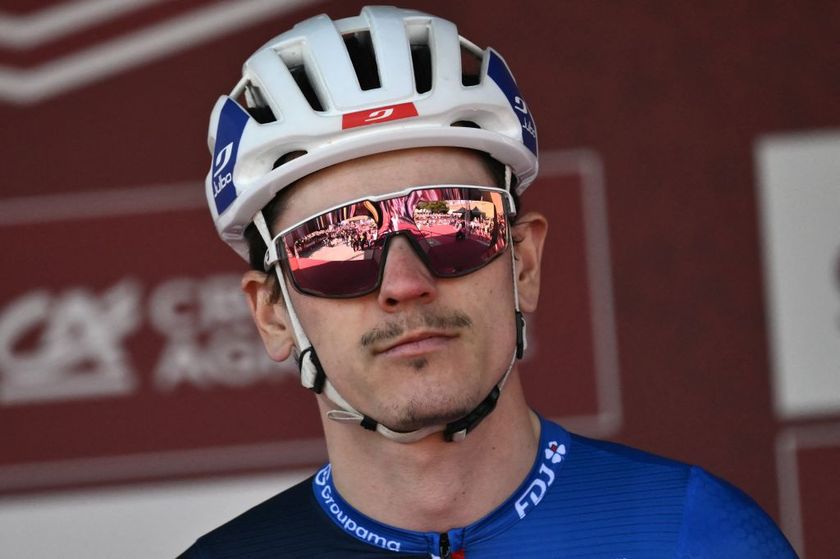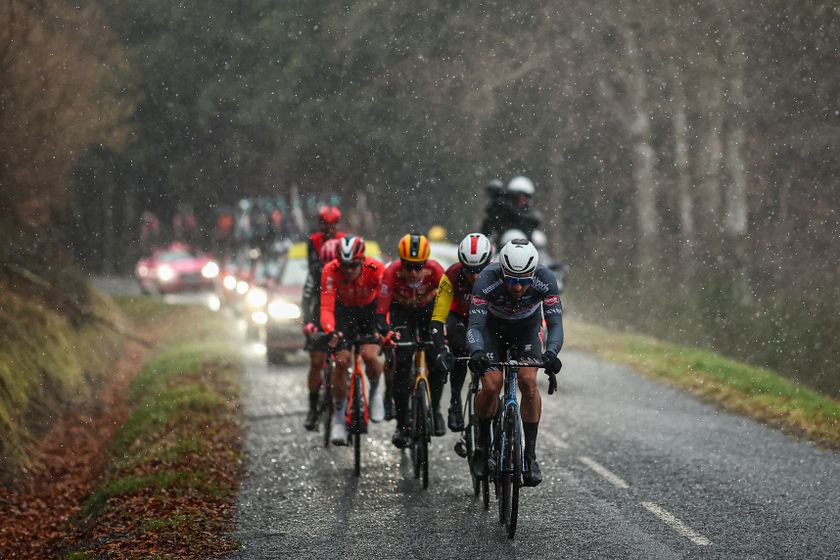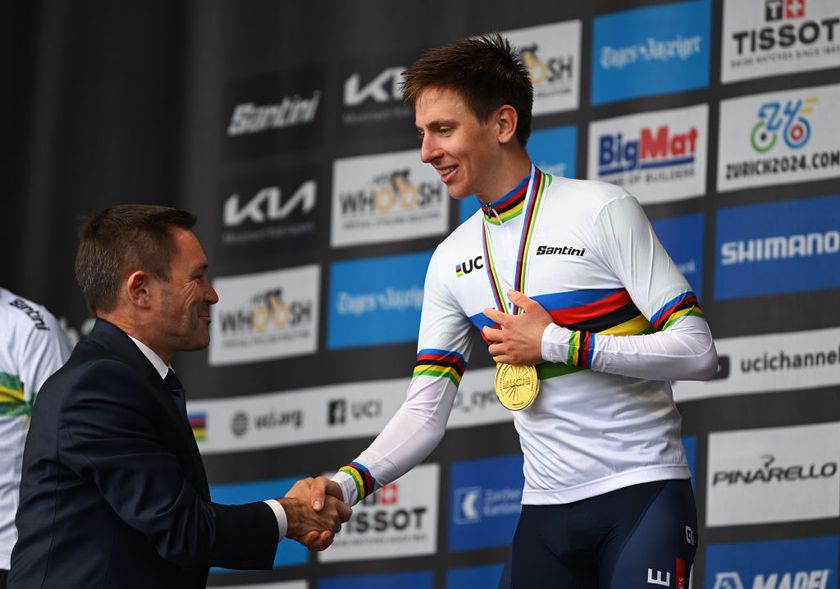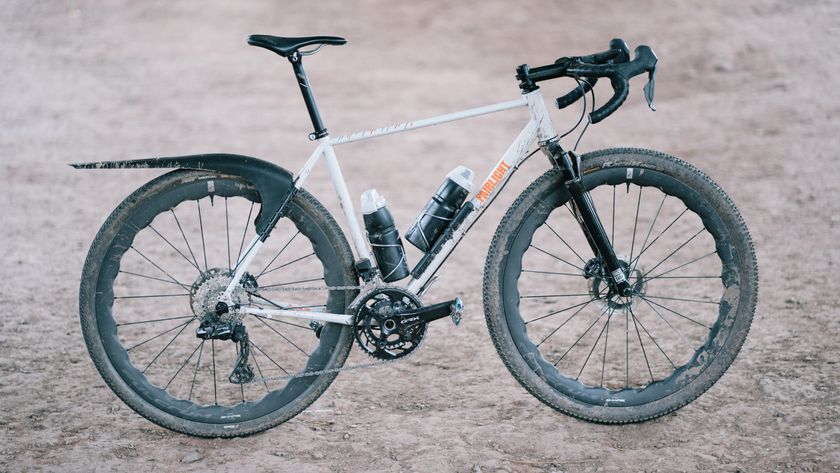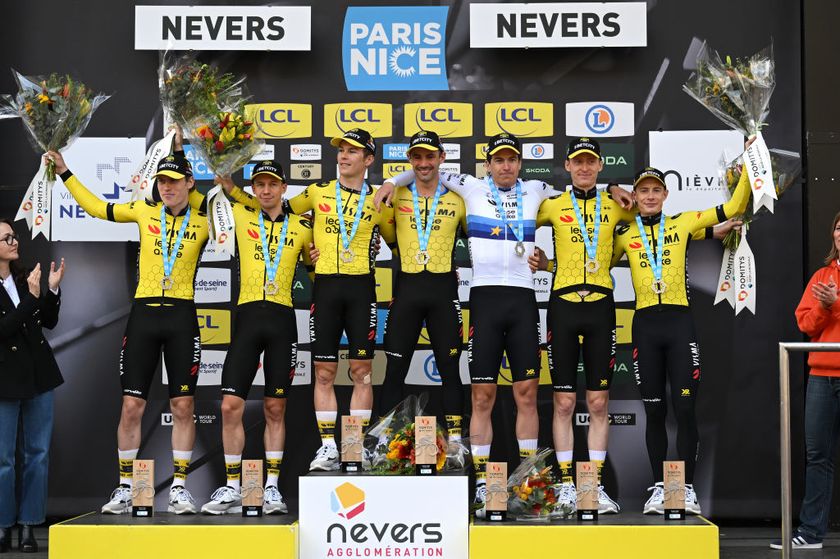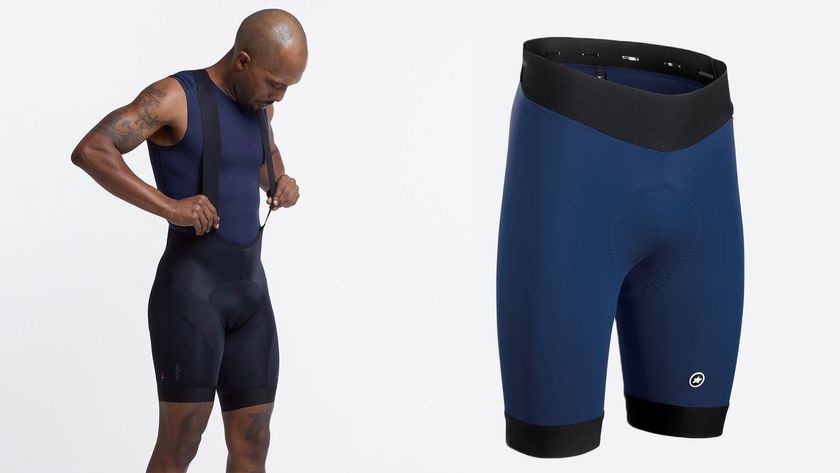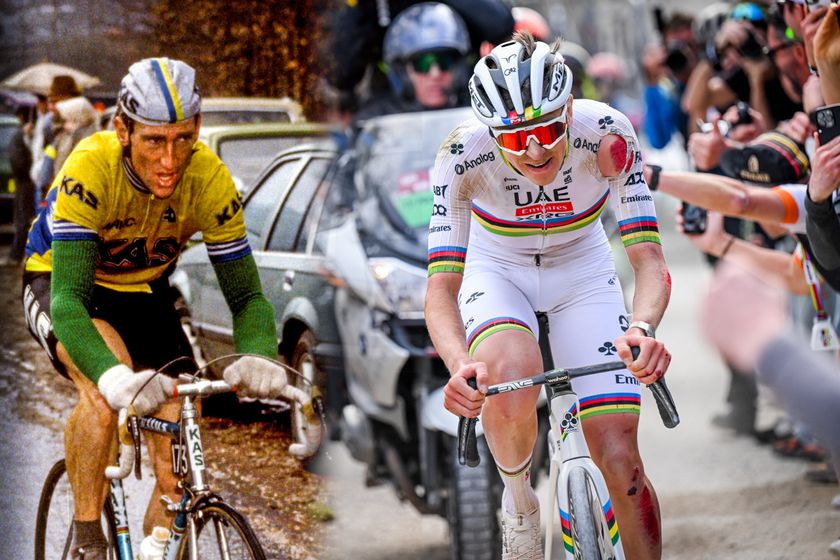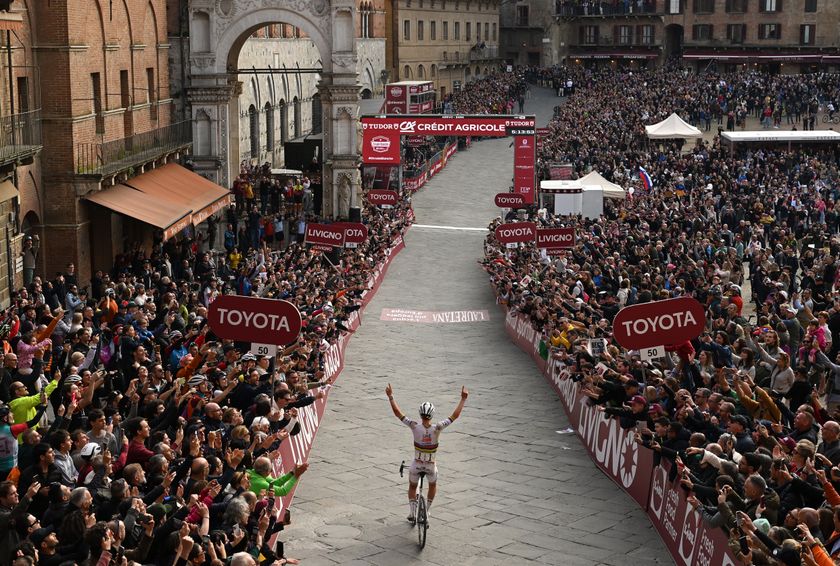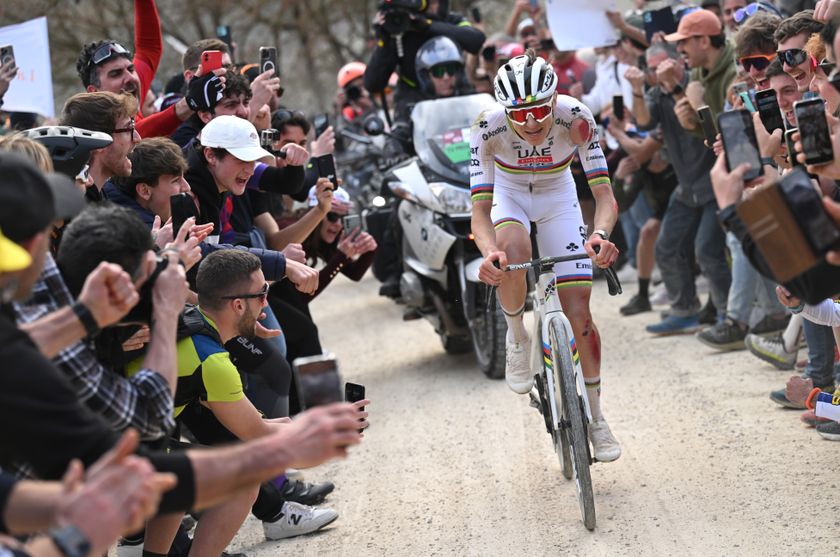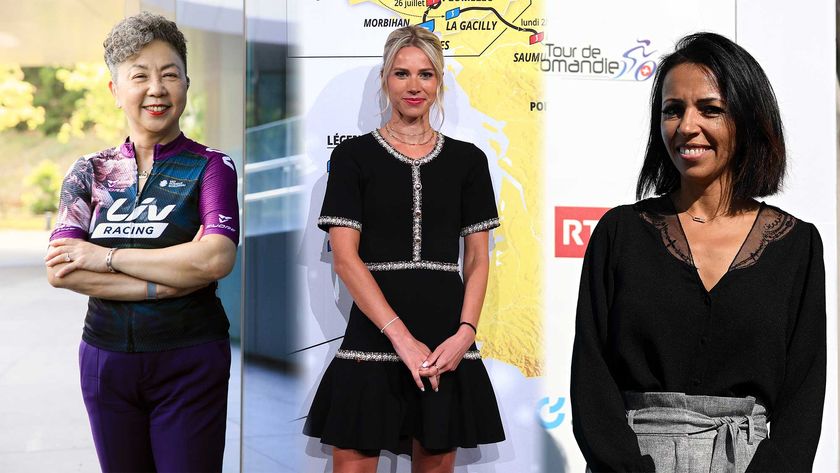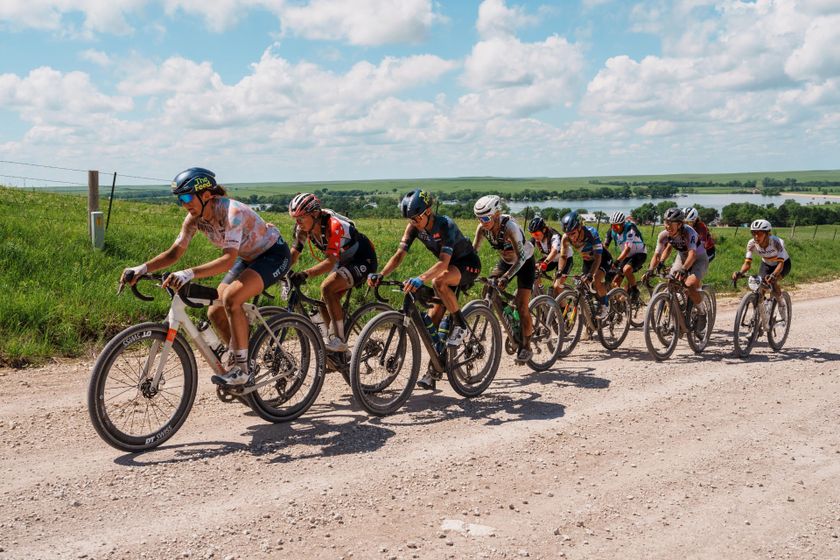Pro bike: Katie Compton's Trek Boone 9 and Boone 9 Disc
Disc and rim brake options plus impeccable prep for the 10-time US champion



































This article originally appeared on BikeRadar
Katie Compton is without doubt the most successful American cyclocross racer ever with nearly two dozen World Cup wins, three World Championship medals, two overall World Cup titles, and a dominating 10 US national titles. Not surprisingly, Trek Factory Racing showers the affable Coloradan with an enviable level of equipment support so she can be prepared for any course conditions, anywhere, at any time.
While many racers are locked into using either rim brakes or disc brakes, Compton has Trek Boone 9s set up with both. Compton and her husband/mechanic Mark Legg-Compton don't travel the globe with both simultaneously, though. Compton generally prefers the lighter and less powerful rim brake bikes for the rigors of European racing, while the disc bikes are usually reserved for racing on home soil.
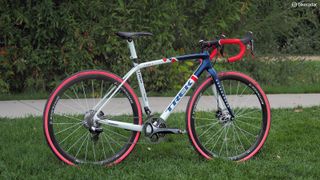
Compton gets to choose from disc or rim brake bikes at will
Both bikes, however, incorporate Trek's groundbreaking IsoSpeed design, which uses a mechanical pivot at the seat cluster that allows for much more flex (and thus, comfort and rear-wheel traction) at the saddle than a conventional frame. Write it off as a gimmick if you insist, but it does work – and remarkably well, in fact.
Compton should be familiar with the Trek Boone 9 chassis at this point, having ridden on it for at least part of last season, but she'll have to get used to a few major changes this time around. For one, she's moved away from SRAM Red 22 componentry in favor of Shimano Dura-Ace Di2 – and she's even moved to Shimano for pedals instead of her longstanding Crankbrothers Eggbeater 11s.
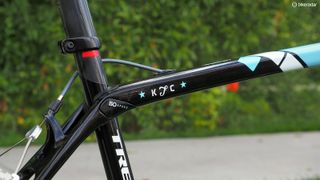
The 'K' is for Katie, the 'C' is for Compton, and the 'f'... isn't for Francesca
Get The Leadout Newsletter
The latest race content, interviews, features, reviews and expert buying guides, direct to your inbox!
Compton has used Shimano's electronic transmission before, but she'll have to get used to completely different gearing. Whereas she once preferred WickWërks' rather small 42/34T chainrings paired with a SRAM 11-26T cassette, she's now on a 12-28T cassette with more conventional 36/46T chainrings (including CNC-machined outer chainrings that Shimano currently only provides to sponsored racers).
Save for the obvious differences in brake hardware, both sets of bikes are otherwise identically outfitted with ultralight Bontrager integrated carbon fiber cockpits and a collection of tires from famed French tubular maker FMB. Naturally, Bontrager supplies the wheels as well, which include the company's versatile Aeolus 3 D3 carbon tubulars on the rim brake bike. Bontrager doesn't currently offer disc-compatible carbon tubular wheels, so Compton's are custom built using Aeolus 3 D3 rims and Affinity Pro hubs.
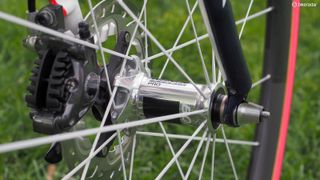
C
As for pedals, Compton is now on Shimano's prototype XTR model, which uses a specially milled-down body as compared to the standard XTR Race version for better mud clearance. While these may be appreciably heavier than the Crankbrothers pedals Compton used for years, Legg-Compton says the bigger platform – and more reliable starts that come along with it – were well worth the extra grams.
Compton's bikes may be nice to look at (and they obviously can go very, very fast) but what's always striking each time we profile one is how impeccably they're prepared. Legg-Compton says he'll spend up to three days building each one, thanks in no small part to the fanatical attention to detail. Legg-Compton has a strict 'no zip-ties' policy, for example, so the brake hoses on the Boone 9 Discs are secured with a mix of fishing line and Krazy Glue. Meanwhile, heat shrink tubing is used for the cable ends on the rim brake bikes and to pair the Di2 wires to the rear brake lines.
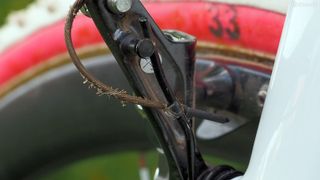
Look closely and there's an incredible attention paid to detail
We've often noticed that Legg-Compton is quite a fan of glue in general. More Krazy Glue – plus a bit of Colorado sand – is used to provide some much-needed texture on the Di2 shifter buttons while frame holes are sealed with clear silicone adhesive. Although it doesn't look especially tidy (sorry, Mark!), it does feel fantastic – and not unlike the similar mod we proposed a couple of years ago.
Regardless of how it looks, it certainly works well. More importantly, Compton is putting the new bikes to good use with a very strong start to this season with perhaps a strong World Cup run to follow.
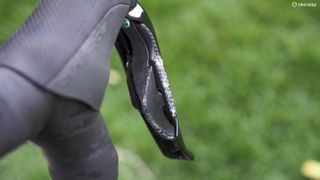
A mix of Krazy Glue and "Colorado sand" adds some much-needed texture and grip to the Shimano Dura-Ace Di2 shifter buttons
Complete bike specifications
Frame: Trek Boone 9, 52cm
Fork: Trek IsoSpeed Cross
Headset: Cane Creek IS, 1 1/8-to-1 1/2in tapered, integrated
Handlebar/stem: Bontrager XXX Integrated, 400mm (c-c) x 120mm x -7°
Front brake: Shimano BR-CX70 w/ Bontrager carbon-specific pads
Rear brake: Shimano BR-CX70 w/ Bontrager carbon-specific pads
Brake levers: Shimano Dura-Ace Di2 STI Dual Control ST-9070
Rear derailleur: Shimano Dura-Ace Di2 RD-9070
Shift levers: Shimano Dura-Ace Di2 Dual Control ST-9070 w/ SW-R610 'sprint' shifters
Cassette: Shimano Dura-Ace CS-9000, 12-28T
Chain: Shimano Dura-Ace CN-9000
Crankset: Shimano Dura-Ace FC-9000, 175mm, 36/46T
Bottom bracket: Enduro XD-15
Pedals: Shimano XTR prototype
Wheelset: Bontrager Aeolus 3 D3 tubular
Front tire: FMB Super Mud tubular, 33mm, 17-24psi
Rear tire: FMB Super Mud tubular, 33mm, 17-24psi
Saddle: Bontrager Affinity Pro
Seatpost: Bontrager Ride Tuned Carbon seatmast
Critical measurements
Rider's height: 1.65m (5ft 5in)
Rider's weight: 61kg (135lb)
Saddle height from BB, c-t: 695mm
Saddle setback: 15mm
Seat tube length (c-t): 470mm
Seat tube length (c-c): 450mm
Tip of saddle nose to center of bars (next to stem): 490mm
Saddle-to-bar drop: 45mm
Head tube length: 122mm
Top tube length (effective): 531mm
Weight: 7.31kg (16.12lb)
